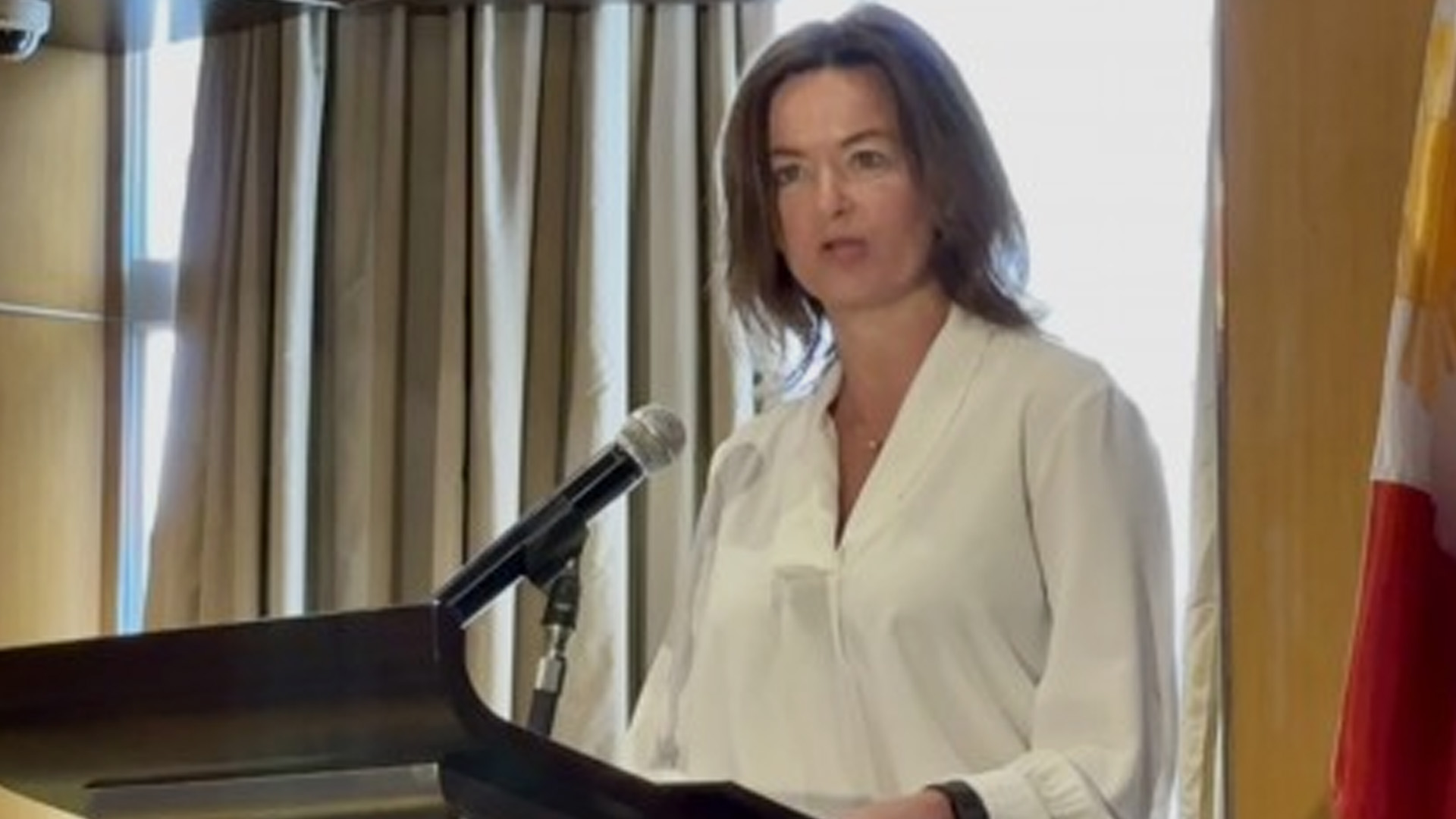Any action that promotes security is a “step in the right direction,” Slovenian Foreign Minister Tanja Fajon said Tuesday.
Fajon made the remark when asked on her opinion on the creation of an Asian version of the North Atlantic Treaty Organization (NATO) as a likely deterrence system in the region.
Citing Slovenia’s experience with its alliances, the foreign minister said membership to the NATO had been Slovenia and Europe’s “best guarantee” for collective security.
“I believe every alliance that provides security in a peaceful manner through the [sic] dialog and strengthen our values, it’s a way to go for it,” she said in a joint press conference after her meeting with Foreign Affairs Secretary Enrique Manalo in Manila.
“I wouldn’t comment on what is the current situation here in the region, but I can just say that any initiative that promotes security, peace and solidarity among the countries in the region is a step in the right direction,” she added.
Manalo said there had been no formal discussions about the creation of an Asian NATO in regional meetings that the Philippines is part of.
He believes that partnerships of a bilateral, trilateral, and minilateral scope “would be the most suitable for our needs today”.
“But of course, situations are dynamic, so you never know,” he said in the same presser.
Manila’s top diplomat, meanwhile, noted that indeed many countries are currently “operating more on the establishment” of greater partnerships as well as minilateral, bilateral, and trilateral arrangements for economic, political, military activities.
“I think that is the present approach, there hasn’t really been any formal discussion in any of our organization, whether in ASEAN (Association of Southeast Asian Nations) or anything I’m aware of on a possible NATO,” he said.
“I think what will happen is that each region will just have to eventually find out which is the best type of arrangement, which its members can live with in addressing security challenges,” he added.
In a September 2024 article published by the Hudson Institute prior to his election, Japanese Prime Minister Ishiba Shigeru floated the need to create an Asian version of the NATO against the backdrop of Russia’s invasion of Ukraine.
At that time, Ishiba fretted over the lack of a collective self-defense system like NATO in Asia as he posited that “Ukraine today is Asia tomorrow”.
“Replacing Russia with China and Ukraine with Taiwan, the absence of a collective self-defense system like NATO in Asia means that wars are likely to break out because there is no obligation for mutual defense,” he wrote.
“Under these circumstances, the creation of an Asian version of NATO is essential to deter China by its Western allies,” he added.
In his previous remarks, Ishiba agreed that the proposal “is something that can be realized overnight,” and that Japan’s focus would be on strengthening its alliance with the United States and building a network among “allied and like-minded countries organically and at multiple levels”. (PNA)







